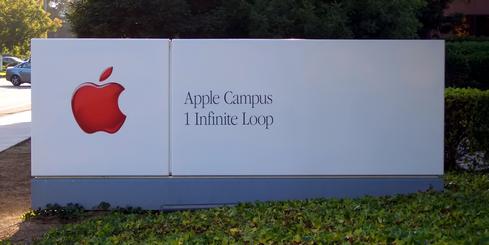Apple Acquires Metaio, Targeting Augmented RealityApple Acquires Metaio, Targeting Augmented Reality
Apple continues its string of acquisitions with the purchase of Metaio, a company specializing in augmented reality software development.


10 Apple Acquisitions: What Do They Mean?
10 Apple Acquisitions: What Do They Mean? (Click image for larger view and slideshow.)
Apple is muscling into the augmented reality space with the acquisition of German company Metaio, according to several media sources.
Metaio offers a host of products, including a user-friendly augmented reality authoring tool, and a software development kit (SDK) comprised of a capturing component, a sensor interface component, a rendering component, and a tracking component. The company also makes an application hosting and delivery-as-a-service platform.
Apple issued its standard email message to various publications, which neither confirmed nor denied the acquisition.
"Apple buys smaller technology companies from time to time, and we generally do not comment on our purpose or plans," Apple's email stated.
A photo also surfaced on Twitter showing a document that allegedly provides proof of the closed deal. (Most of the tweets are in German.)
The concept of augmented reality combines real-time views of a person's environment supplemented by displays of sensory information, such as GPS coordinates, information about the weather, and other data.
On Metaio's website, the company provides potential customers with a banner explaining that its products and subscriptions are no longer available for purchase. The company notes that downloads of customers' previous purchases would be available until December 15 and active cloud subscriptions will be continued until expiration.
The company is also providing email support to its customers until June 30 of this year, and the company's help desk remains available for reference until December 15.
The news follows a March research note written by Piper Jaffray analyst Gene Munster, who said Apple was in talks with augmented reality specialists.
This is not Apple's first foray into augmented reality technology, however. In February the company was awarded a patent for a head-mounted virtual reality set that uses an iPhone as the display and computing component.
The concept is similar to Samsung's Gear VR, a virtual reality device developed in collaboration with Oculus VR, a company that was acquired by Facebook for $2 billion last year.
Major technology companies like Google, with its much-publicized but ultimately abandoned Google Glass project; Microsoft; and Sony are all exploring the augmented reality market.
It remains to be seen whether the public will embrace admittedly futuristic technology that so far has resulted in clunky, decidedly unstylish hardware. (Early enthusiasts of Google Glass earned the unfortunate moniker "Glassholes.")
Google showed off its latest virtual reality headset, Cardboard 2.0, earlier this week at its annual I/O developer conference, which is made largely from cardboard and seeks to reach a wide audience with a user-friendly design and an unabashedly, inexpensive look.
In terms of actual business use, Microsoft's HoloLens that might actually have the most business appeal, but, as with so many other VR and augmented reality devices, it's far away from mass production or actual real-world tests.
[Read more about Microsoft's HoloLens.]
According to a report from Tractica, shipments of augmented reality glasses are projected to jump from 114,000 units worldwide in 2015 to nearly 5.4 million units annually by 2020, with a total of 12.2 million shipments during the period.
"The smart glasses market is enjoying a period of tremendous innovation," Tractica research director Aditya Kaul wrote. "Despite Google's decision to go back to the drawing board and redesign Google Glass, other vendors have ramped up their activity significantly."
[Did you miss any of the information Conference in Las Vegas last month? Don't worry: We have you covered. Check out what our speakers had to say and see tweets from the show. Let's keep the conversation going.]
About the Author
You May Also Like






